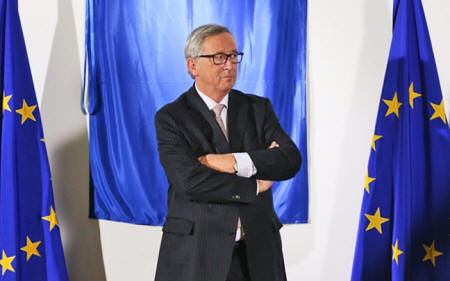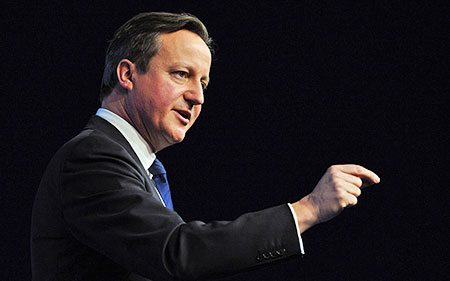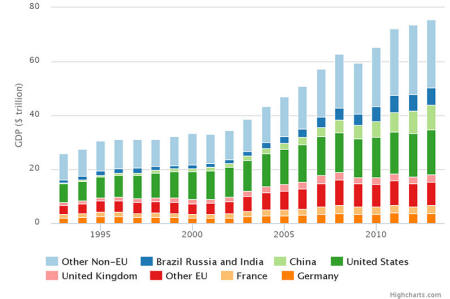|

by Matthew Holehouse
22 October 2015
from
TheTelegraph Website
Spanish version
Italian version
The European Union
faces an age of comparative
economic decline,
while the 'love' affair' of
integration is at risk,
says Jean-Claude Juncker

Luxembourg,
which was headed by
Commission president
Jean-Claude Juncker,
has failed to comply
with the directive
The European Union faces long-term economic decline and the "love
affair" of integration is at risk, Jean Claude-Juncker has
said in a downbeat assessment of the bloc's future.
"Economically, we see the end of
Europe's glorious years compared with what others are doing,"
the president of the European Commission said.
The "dream" of a unified continent is at
risk from "fissures and fractures" of national divisions and
separatist movements, he said.
"The European Union is not going
very well," Mr Juncker said. "And so we must ensure that we keep
alive the ambitions, hopes and dreams of Europe."
The EU's share of global output is
falling and will soon represent just 15 per cent of worldwide gross
domestic product, while 80 per cent of growth is emerging from
countries outside the European Union, he said.
With an ageing population, Europe's share of the world's population
has fallen from 20 per cent a century ago to seven per cent now, and
could be just four per cent by the end of this century when the
world reaches ten billion people.
"We are demographically weakened,
and will remain so," added Mr Juncker, the former Prime Minister
of Luxembourg.
The warning over Europe's comparative
decline closely mirrors that of pro-Brexit campaigners who argue the
UK should build ties with emerging economies rather than be "shackled
to a corpse".
However, Mr Juncker said it underlined the need for Europe to "stay
together".
"The time has not arrived for us to
re-divide the national leagues and classes," he said in an
address in Madrid.
David Cameron has pointed to the
risk of European decline to push for more ambitious trade deals with
the US and Far East, and the removal of national barriers in
services and digital technologies, as part of his renegotiation
drive:
EU Reform - The Key Demands

The Prime Minister's key demands for EU reform:
Iconic changes
Getting an opt-out for Britain from the EU's founding
principle of "ever closer union". This is intended to ensure
the UK is never forced to join a new European superstate
The euro
Explicitly writing into the European treaties that the EU is
a multi-currency union, deleting references to the euro as
the EU's official currency
Practical changes
Repatriating powers from Brussels to Britain, giving
Parliament more autonomy and scaling back the influence of
EU law on domestic affairs. Detailed work is already under
way on this and European officials are understood to be
considering calls for a so-called "red card" system to allow
parliaments to block new EU directives
Major structural reforms
To prevent the Eurozone countries forcing new rules on the
nine other member states including Britain that are not in
the single currency. Work has begun in Paris and Germany on
drafting new arrangements that would guarantee protections
for the City of London
Others in Brussels argue the cure for economic malaise is radical
economic integration to a degree that Britain would never tolerate.
The prospect of demographic, and therefore economic, decline has
persuaded some European officials that
the refugee crisis is a blessing
in disguise.
EU's share of global GDP is falling:

Mr Juncker likened the European project
to the vale of tears, the Biblical term for the sorrows of
life on earth.
"When I'm on another continent, I
see eyes shine when those I visit talk about Europe. And when I
return to Brussels or Luxembourg, I find myself in a valley of
fears, a valle Lacrimarum. We do not know who we are, and
we are not proud of the solid achievements of our predecessors."
In a separate speech to the European
People's Party, Mr Juncker said he would focus on 'social Europe' –
that is, employment rights – to win the support of "simple" people.
"We can't lose the people who always
believed in us, the simple people who work, who aren't any less
intelligent than the elites. They've always supported Europe and
it is about reconquering their heart."
British dependency on EU trade is at a
record low:

Frans Timmermans, Mr Juncker's
deputy, warned of a crisis of support for the EU.
"What was unimaginable before now
becomes imaginable, namely the disintegration of the European
project," he told the Friends of Europe forum in Brussels.
"The European ideals still have very
strong support among the population across Europe. What do not
have strong support are European politicians and European
politics."
EU Who's Who

Pictures: AFP,
Getty, Patrick Seeger/EPA, Reuters
1. Jean-Claude Juncker
President of the European Commission, the EU's executive arm.
Former Prime Minister of Luxembourg for 18 years. Federalist and
bon viveur
2. Donald Tusk
President of the European Council, the summit of 28 member
states. Tough former Polish Prime Minister, still finding his
feet in Brussels
3. Frans Timmermans
First Vice President of the European Commission. Former Dutch
foreign minister. Realist who embraces Britain's desire for
greater competitiveness and less ideology
4. Martin Schulz
President of the European Parliament. Veteran German socialist
and furious critic of Cameron's renegotiation
5. Mario Draghi
Powerful Italian president of the European Central Bank and
former Goldman Sachs banker. His institution was criticised for
pushing Greece to the brink of a euro exit this summer
6. Federica Mogherini
High Representative, the EU's foreign secretary. Former Italian
socialist foreign minister.
***
|







